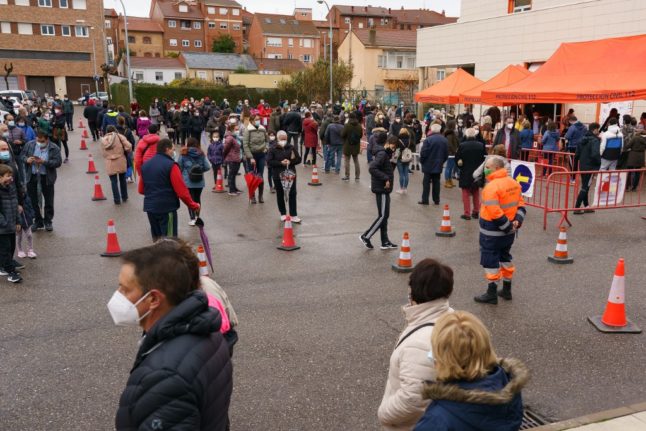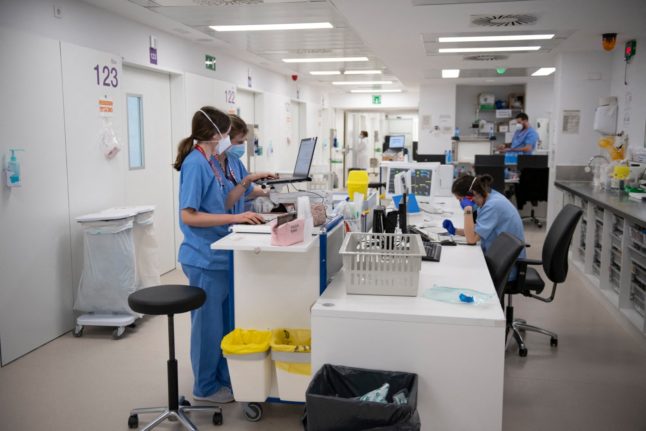The regional government insists a rapid test programme is needed to bring the pandemic under control in the capital.
Antigen kits are less precise than standard PCR tests but provide results within minutes, rather than the days needed to process a PCR test in a laboratory.
Both are swab tests diagnosing an active infection. Where PCR tests detect the virus’s genetic material, however, antigen tests detect specific proteins from it.
Antigen tests are faster and usually highly accurate, but there is an increased chance of false negative results and they are not as sensitive as molecular tests, particularly in the early days of infection.
PCR tests are slower but seen as the ‘gold standard’.
But for the conservative run Madrid region, which has often locked horns with Spain’s left-wing central government on coronavirus policy, the speed that comes with an antigen test is viewed as a key tool.
“Every day that passes without the Spanish government authorizing us to use pharmacies (to perform antigen tests) is a day we lose against the pandemic,” the region’s deputy chief Ignacio Aguadosaid in a press briefing on Wednesday.
Queremos realizar test de #COVID19 a todos los madrileños.
Los farmacéuticos pueden ser un gran aliado en esta tarea. Por eso, necesitamos que el ministro Illa nos autorice a poder realizarlos también en las 3.000 farmacias de la región.
No hay tiempo que perder. #VamosMadrid pic.twitter.com/B5IRsoI9Po
— Ignacio Aguado (@ignacioaguado) November 18, 2020
“The aim has to be to reach as many Madrilenos as possible. If we are not able to reach all the people of Madrid before Christmas, we will have to ask the (health) minister why.”
But health emergency chief Fernando Simón has raised doubts over the request.
“We can’t envisage that someone with symptoms would go to a pharmacy to get the test done,” Simón said in a televised briefing on Monday.
“There’s a risk that the (pharmacy) staff, by carrying out the tests, if they can do it, would get contaminated.”
The European Commission recommends that antigen tests are used to confirm coronavirus mostly on people already showing symptoms, saying that the kits were deemed less accurate in detecting the virus in asymptomatic cases.
READ MORE:
- When will the new Covid-19 vaccines be available in Spain?
- Which travellers must show negative Covid-19 test on arrival in Spain?
- Q&A: What to do if you suspect you have Covid-19 or need a test in Spain



 Please whitelist us to continue reading.
Please whitelist us to continue reading.
Member comments